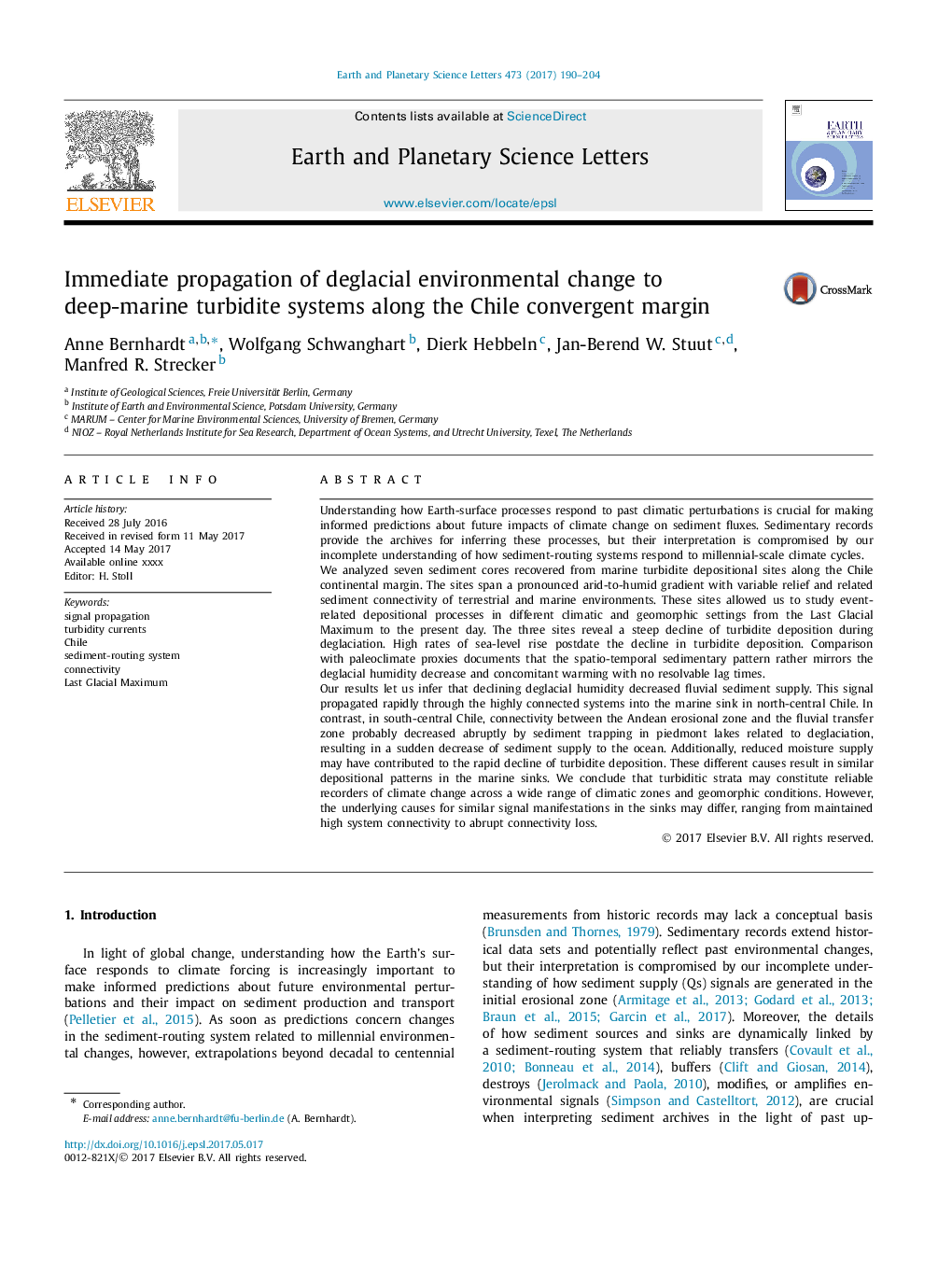| Article ID | Journal | Published Year | Pages | File Type |
|---|---|---|---|---|
| 5779697 | Earth and Planetary Science Letters | 2017 | 15 Pages |
Abstract
Our results let us infer that declining deglacial humidity decreased fluvial sediment supply. This signal propagated rapidly through the highly connected systems into the marine sink in north-central Chile. In contrast, in south-central Chile, connectivity between the Andean erosional zone and the fluvial transfer zone probably decreased abruptly by sediment trapping in piedmont lakes related to deglaciation, resulting in a sudden decrease of sediment supply to the ocean. Additionally, reduced moisture supply may have contributed to the rapid decline of turbidite deposition. These different causes result in similar depositional patterns in the marine sinks. We conclude that turbiditic strata may constitute reliable recorders of climate change across a wide range of climatic zones and geomorphic conditions. However, the underlying causes for similar signal manifestations in the sinks may differ, ranging from maintained high system connectivity to abrupt connectivity loss.
Related Topics
Physical Sciences and Engineering
Earth and Planetary Sciences
Earth and Planetary Sciences (General)
Authors
Anne Bernhardt, Wolfgang Schwanghart, Dierk Hebbeln, Jan-Berend W. Stuut, Manfred R. Strecker,
